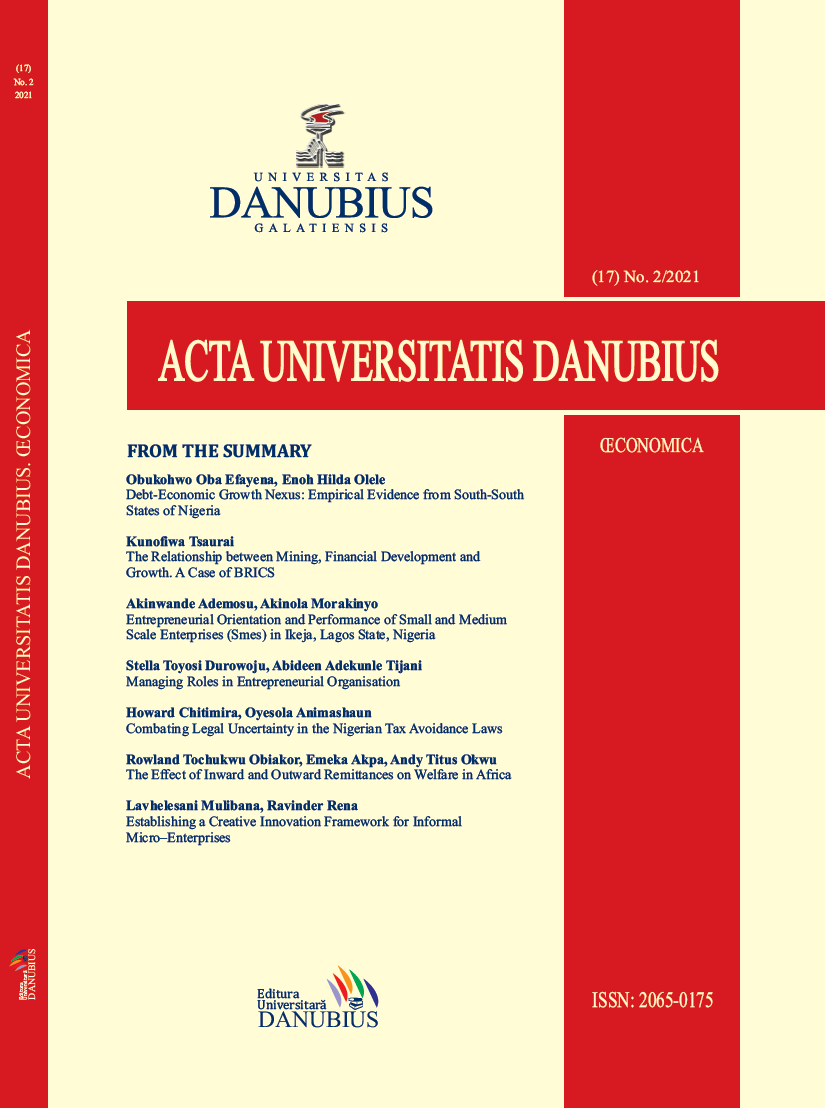Savings, Investment and Economic Growth in Nigeria: An Autoregressive Distributive Lag Approach
Savings, Investment and Economic Growth in Nigeria: An Autoregressive Distributive Lag Approach
Author(s): Osmond Chigozie Agu, Adeleke OmoladeSubject(s): National Economy, Economic development, Socio-Economic Research
Published by: Editura Universitară Danubius
Keywords: ARDL; Investment; Economic Growth; Saving; Structural Breaks;
Summary/Abstract: The study examined the impacts of savings and investment on economic growth in Nigeria, using some statistical tests such as ARDL estimating technique, Augmented Dickey Fuller (ADF) and Bound co-integration test on Nigerian data from 1980 to 2019. The estimation results show that savings and investment have negative and statistically significant effect both in the short-run and long-run on economic growth in Nigeria. These suggest that Nigeria has grossly low saving culture and may be experiencing deficient demand problems. This result affirms the classical view that both savings and investment equilibrates. Infrastructural facilities (proxy by electricity) have negative and significant effects on economic growth in Nigeria. The implications are that private provision of electricity is usually not cost effective and seems to have a negative implication on the business’ profitability. It is therefore recommended that the focus of development policies in Nigeria should be on the monetary and fiscal policies, as to encourage high investment and saving culture.
Journal: Acta Universitatis Danubius. Œconomica
- Issue Year: 17/2021
- Issue No: 2
- Page Range: 216-233
- Page Count: 18
- Language: English

